
No matter the occasion, protecting your hands is of utmost importance. Therefore, safeguarding your hands is one of the most basic and essential issues to address.
The danger is everywhere, and caution is undoubtedly fundamental. From chemicals and abrasive surfaces to shards, broken glass, cuts, and scrapes, most workplace injuries involve the hands. These injuries result in staggering losses, amounting to billions of dollars. Shockingly, nearly half of these injuries are primarily due to employees not wearing safety gloves, which highlights the importance of safety gloves.
However, with the plethora of glove types and the complexity of personal protective equipment standards, selecting the right gloves has become a major challenge.
But don’t worry. At Aibon, we will comprehensively solve all your problems while providing the high-quality safety gloves you need. In this blog, we will guide you on how to choose the right work safety gloves to ensure your employees’ hands remain absolutely safe and efficient at work.
Types of Work Gloves
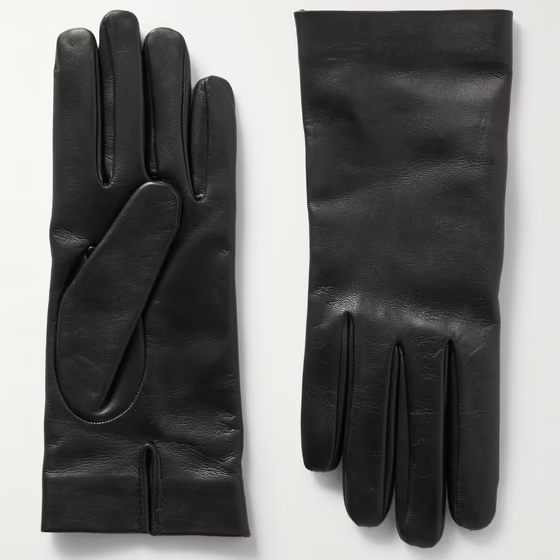
Leather Gloves:
Leather gloves are undoubtedly a blend of art and practicality. They are durable, comfortable to wear, and fashionable, offering resistance to cuts, punctures, and abrasions. They are ideal for outdoor activities like hiking, hunting, and fishing, as well as landscaping and construction machinery industries. However, they lack chemical resistance and are unsuitable for laboratory settings.
Pros:
- Durable, long-lasting, comfortable, and stylish.
- Windproof, waterproof, cut-resistant, puncture-resistant, and abrasion-resistant.
- Provides a good grip.
- Suitable for outdoor activities, construction machinery, and more.
Cons:
- Unsuitable for handling chemicals as leather is not chemically resistant and may absorb chemicals, damaging the hands.
- Susceptible to weather conditions, potentially hardening, deforming, or molding when exposed to prolonged damp environments.
- Requires meticulous maintenance, including regular oiling or waxing, and demands professional cleaning and care due to high maintenance standards.
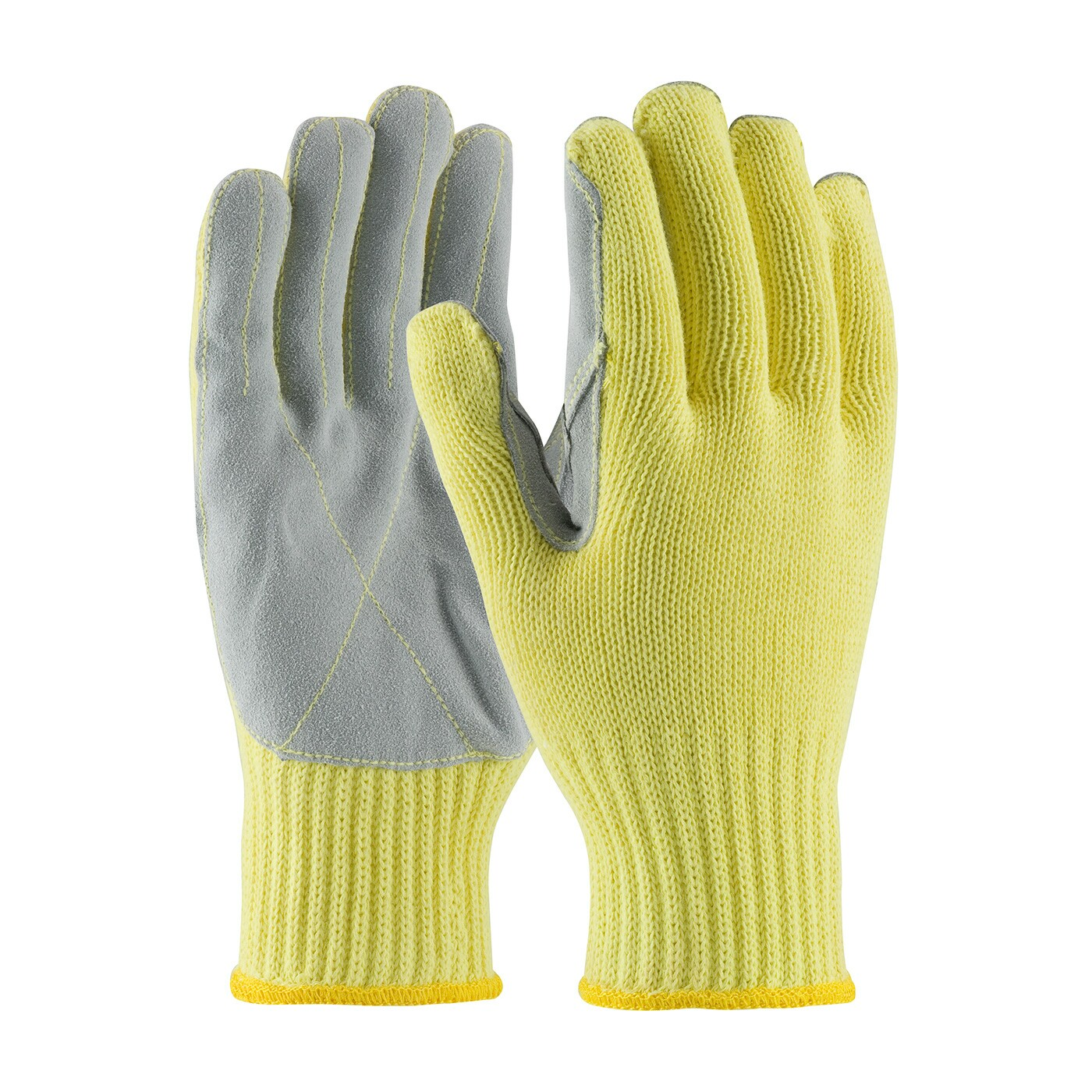
Kevlar Gloves:
Kevlar gloves offer excellent protection, being made from a high-strength synthetic material called Kevlar. They are cut-resistant, heat-resistant, abrasion-resistant, and five times stronger than steel, making them an excellent choice for handling sharp tools and materials.
Pros:
- Excellent cut and puncture resistance.
- Abrasion-resistant, heat-resistant, and corrosion-resistant.
- Suitable for industries like glass processing, metal forging, welding, and more.
- Lightweight, comfortable, and suitable for fine work.
Cons:
- Poor breathability, unsuitable for use in high-temperature environments.
- Limited protection options and less comfortable to wear compared to other gloves.
- More expensive than other glove materials.
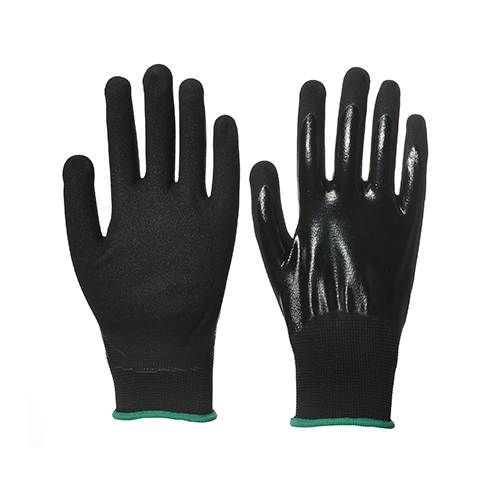
Nitrile Coated Gloves:
Nitrile coated gloves are made by dipping a knitted or cotton glove into a layer of nitrile rubber. Nitrile is a synthetic rubber material known for its strong chemical resistance and oil resistance. They are popular in industries such as construction, machinery, and healthcare.
Pros:
- Excellent chemical resistance and abrasion resistance.
- Provides excellent grip in wet and oily environments.
- Offers puncture resistance.
- Does not cause latex allergies like latex gloves.
- Suitable for chemical, construction, manufacturing, and other industries.
Cons:
- Not as soft as latex, and does not provide robust cut resistance.
- Limited chemical resistance compared to chemical-resistant gloves.
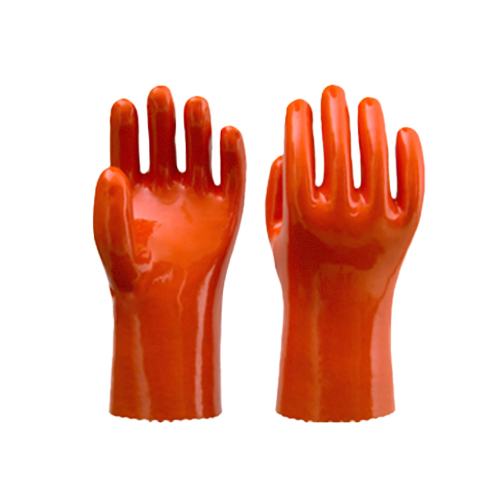
Chemical Resistant Gloves:
If your work environment involves handling chemicals or highly hazardous chemical substances, then chemical-resistant gloves are indispensable.
Chemical-resistant gloves are a broad category of gloves typically made from materials like nitrile, chloroprene rubber, or polyvinyl chloride (PVC). Each material offers different levels of chemical resistance and is suitable for various scenarios.
Pros:
- Resistant to various chemicals, economical, and durable.
- Suitable for laboratories, chemical plants, and more.
Cons:
- Lack of comfort and breathability, inconvenient to wear.
- Cannot provide additional protection, and their lifespan is limited.
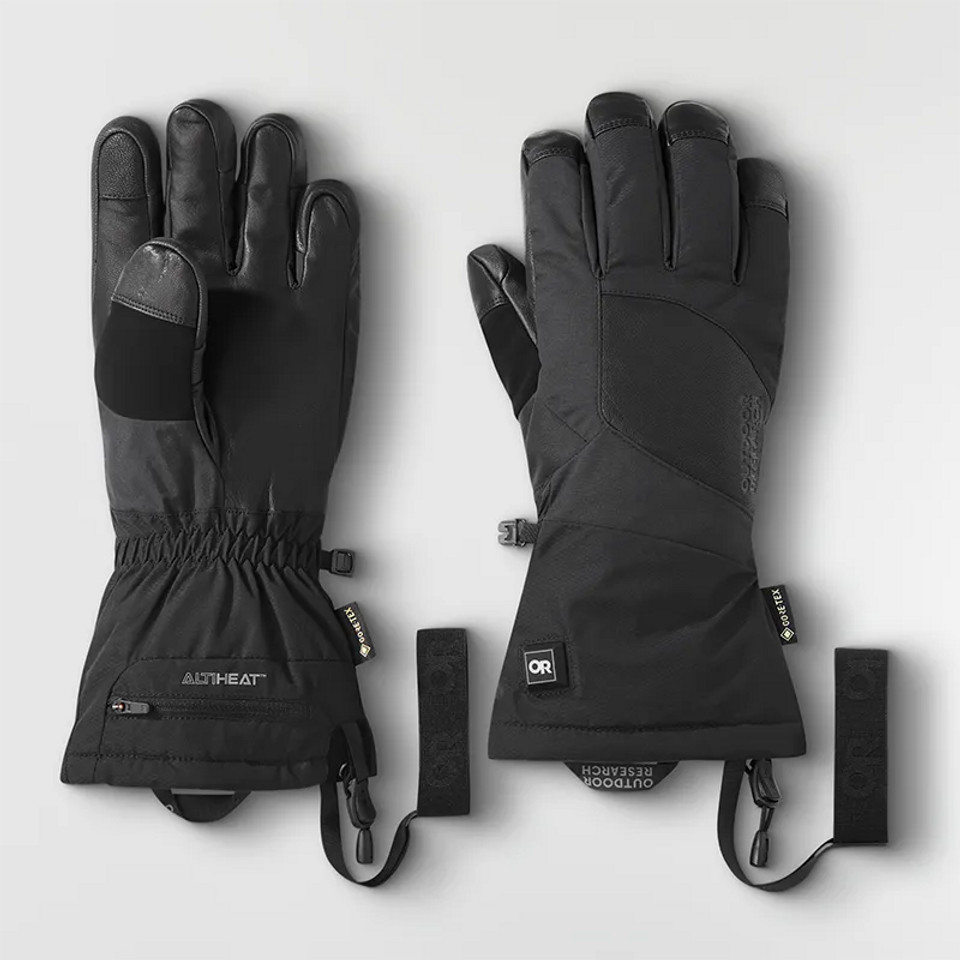
Heat Resistant Gloves:
Heat resistant gloves are personal protective equipment designed to protect against high temperatures and heat hazards.
Pros:
- Excellent heat resistance, protecting against all heat-related injuries.
- Typically made from materials like aramid, silicone, fiberglass, and some high-performance synthetic materials.
- Suitable for welding, casting work, glass manufacturing, and more.
Cons:
- Poor flexibility, and lack of breathability.
- Cannot provide additional protection beyond heat resistance.
When selecting suitable hand protection equipment, consider not only the pros and cons of each type of work glove but also assess the specific hazards present in the work environment. Choosing gloves that are suitable for your needs is essential.
Factors to Consider When Choosing Work Gloves
Required Protection Features and Levels
When selecting safety gloves, the primary consideration should be the environment in which you will be working and the level of protection you need. Assess all potential risks you may encounter, such as cuts, punctures, and chemical exposure.
For example, if you need to handle sharp objects, you should use gloves made from cut-resistant materials like Kevlar, nitrile, or HPPE. If your environment involves hazardous chemicals, choose gloves made from materials like nitrile, neoprene, or butyl rubber based on the specific chemicals you are handling.
Flexibility and Dexterity
If your tasks involve fine operations, such as handling small parts, you need gloves that offer the appropriate level of flexibility. In this case, gloves made from latex or nitrile, which fit the hand perfectly, are more suitable.
However, if you need to handle heavy or rough materials, thicker gloves may be necessary to help you complete the task, even if they are more cumbersome.
Grip and Traction
A firm grip on tools and materials is crucial for safety and productivity. Work gloves with textured palms or coatings can enhance grip and traction, reducing the risk of slips and falls.
For example, gloves with nitrile or polyurethane coatings provide excellent grip in wet or oily environments, while gloves with dotted or diamond pattern textures can improve grip on dry surfaces. When selecting gloves with appropriate grip and traction features, consider the specific materials and work environment you will be dealing with.
Durability and Longevity
Cost-effective, durable, and long-lasting gloves are desirable for most people. To avoid frequent replacements, choosing durable and practical gloves is often the most suitable, providing long-term benefits.
Comfort and Fit
Comfortable gloves can make a significant difference for the wearer. Gloves that are too large or too small can affect work efficiency. Properly fitting gloves can help you avoid unnecessary troubles and accidents caused by incorrect glove sizes.
Specific Industry Requirements
Each industry has specific requirements or standards for work gloves. For example, the food processing industry requires gloves that comply with FDA food contact regulations, and healthcare workers may need gloves that protect against biological hazards and meet medical standards.
Therefore, when choosing work gloves, it is essential to research and comply with the specific requirements or regulations of your industry to avoid unnecessary problems.
Investing in high-quality, well-fitting work gloves not only ensures your and your employees’ safety but also greatly enhances your quality standards.
At Aibon, we understand the importance of finding the perfect work gloves for your needs. We offer excellent products and services and can customize ideal work gloves for your industry, including branding your unique logo on the gloves to enhance your local brand influence.
Additionally, we provide comprehensive services, from samples to bulk orders, with dedicated quality inspectors to safeguard your products. We are committed to delivering the best products to you in the shortest time possible. If you are not satisfied with the products, our after-sales team will fully resolve any issues. If you are interested in our services, please contact us!
How to Measure Glove Sizes – Source: AIBON
Latex gloves– Source: AIBON
Safety gloves– Source: AIBON
Working gloves– Source: AIBON

